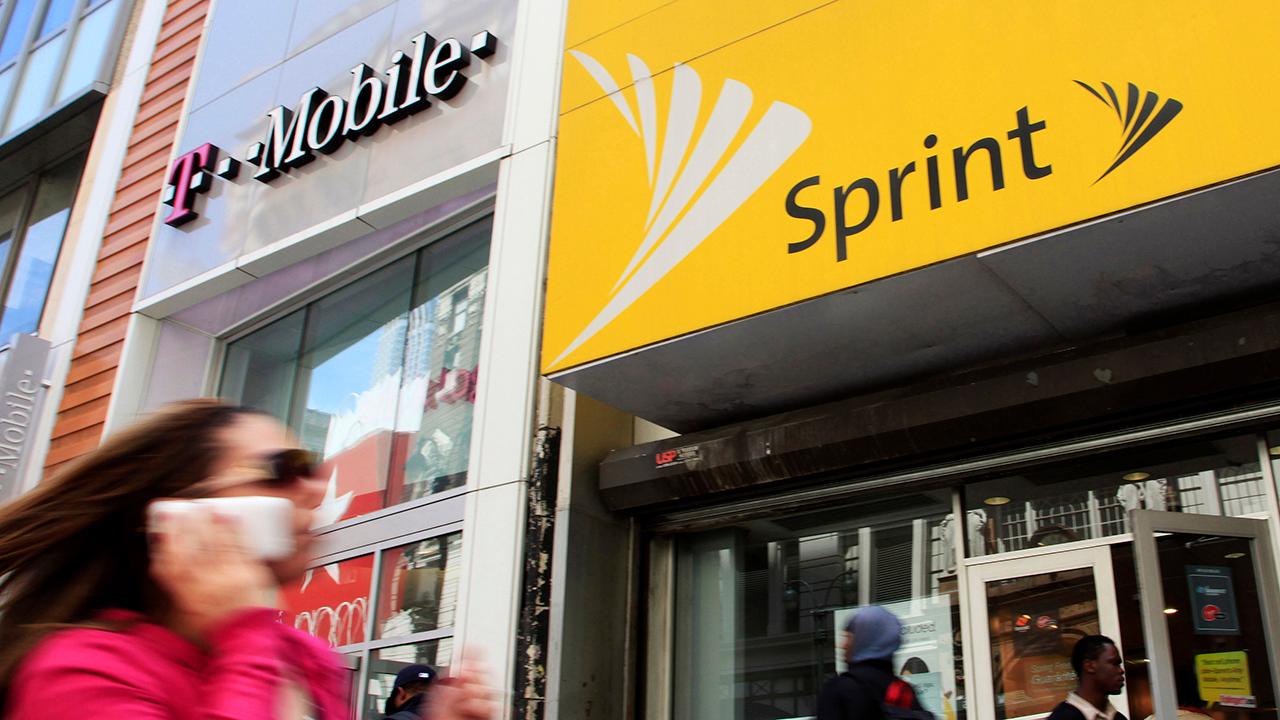Charlie Ergen presents significant obstacle in T-Mobile-Sprint negotiations with DOJ
As the Department of Justice decision on the controversial merger of T-Mobile US, Inc., and Sprint Corp., looms, two potential sticking points have emerged that may not be deal breakers but have become significant enough snags to delay what appeared to be a fait accompli just a week ago, FOX Business Network has learned.
And both of those obstacles involve Charlie Ergen.
The controversial chief of telecom giant Dish Network Corp. is looking to wrap up a deal where he buys spectrum from the combined T-Mobile-Sprint and create a fourth wireless carrier — a necessary hurdle for the transaction to pass antitrust muster at the DOJ, government officials say.
But Ergen’s famously hardball negotiating style and deal-making abilities has both T-Mobile and the DOJ concerned about striking any agreement with him, according to people with direct knowledge of the transaction. And those concerns have posed a significant hurdle in bringing the deal to fruition and have delayed a final DOJ decision on the transaction until possibly next week, these people say.
Spokesmen for T-Mobile, Sprint, Dish and DOJ antitrust had no comment.
Will these worries derail the merger? People working for the companies and the Trump administration say they still expect the deal to go through despite what has been several days of contentious negotiations. The government, for its part, believes a combined T-Mobile-Sprint will be a strong competitor in the all-important race to compete in the superfast 5-G wireless space that could lead to significant jobs and U.S. economic growth.
T-Mobile and, particularly, Sprint, meanwhile, view the merger as existential to their ability to compete against wireless leaders AT&T Inc. and Verizon Wireless.
That said, these complications have been significant enough to make a seemingly done deal look a lot less done over the past week when, as FOX Business first reported, there was agreement on a broad deal structure involving T-Mobile and Sprint selling a chunk of wireless spectrum to Ergen’s Dish to create a wireless network that DOJ wanted in an effort to lessen antitrust concerns by combining two of the four top wireless outfits.
On the DOJ side, one snag that developed was increasing skepticism that Ergen will carry through with any promise to build out this wireless network, given his history of hoarding spectrum and doing little to invest in necessary infrastructure, these people say.
Ergen, for example, has been at odds with the Federal Communications Commission for sitting on billions of dollars in wireless spectrum licenses his company has purchased in recent years as part of his stated and unfulfilled plan to transform Dish from a satellite carrier, to a new company focused on 5G wireless broadband.
| Ticker | Security | Last | Change | Change % |
|---|---|---|---|---|
| TMUS | T-MOBILE US INC. | 197.39 | -4.47 | -2.21% |
| S | SENTINELONE INC | 13.22 | +0.29 | +2.24% |
| DISH | NO DATA AVAILABLE | - | - | - |
He has until 2020 to use those licenses or lose them, and he is looking for an extension on his buildout in exchange for buying the T-Mobile-Sprint spectrum. Officials at DOJ and FCC worry Ergen may use the extension as a ploy to sell the spectrum to another player down the road at a huge profit and not go through with any meaningful buildout, these people add.
T-Mobile and Sprint, meanwhile, are concerned that Dish will be beefed-up with spectrum and the infrastructure and Ergen will sell it to companies that pose a great competitive challenge. Those companies include Comcast Corp., and Charter Communications, according to people with knowledge of the matter.
“It looks like DOJ is looking not for a handshake from Charlie Ergen, but a signed deal,” said one former FCC official.
Ergen’s intentions are also a concern for the FCC and its chairman Ajit Pai, who has been at odds with the Dish chief for some time. Pai is in support of the merger and has set limited conditions for FCC approval, including the combined T-Mobile and Sprint selling its prepaid wireless service Boost, and agreeing not to raise prices for three years.
But the addition of Ergen in the negotiations has irked some FCC officials, and Pai himself, given their recent contretemps over what the FCC chairman believes is a lack of progress in Dish’s wireless buildout, people with knowledge of the matter say.
CLICK HERE TO GET THE FOX BUSINESS APP
Behind the scenes, FCC officials have been critical of DOJ antitrust chief Makan Delrahim for positioning Ergen as the merger’s savior. As a result, the FCC may demand hard-and-fast guarantees from Ergen over his intentions to create what would be a fourth wireless network in order to grant the deal its final green light, people there tell FOX Business.
“[The FCC] will want to see details of his plan, like how much of the country Charlie plans to cover with his network and his signed guarantee to build a network,” said one FCC official. “[People at the FCC] can’t believe Makan is dancing with Charlie like this, given Ergen’s record.”
*This article was updated on 7/3/19 to identify Boost as the prepaid wireless service.




















